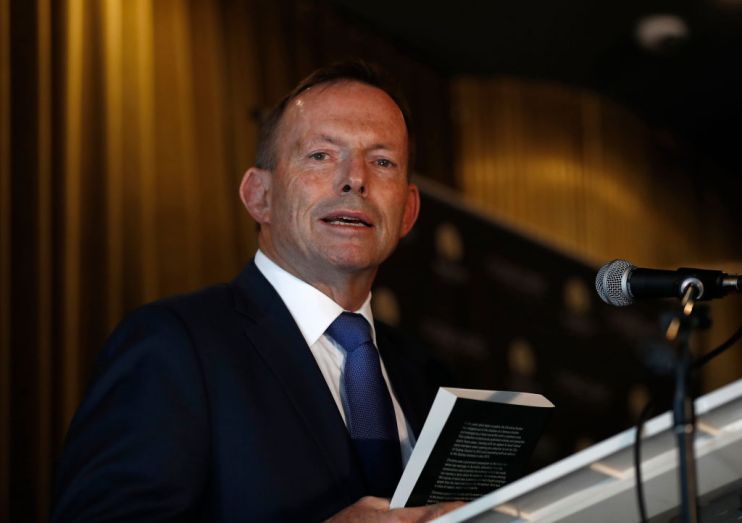Tony Abbott predicts UK will block Chinese purchase of Welsh chip factory

Former Australian Prime Minister Tony Abbott has predicted that the UK will block the takeover of the country’s largest chip manufacturer by a Chinese-owned firm.
Abbott, who is also on the UK’s Board of Trade, told a virtual event today that the sale would be blocked if it happened in Australia and that Boris Johnson is “moving in a comparable direction”.
Nexperia, a Dutch firm owned by China’s Wingtech, earlier this month said it had taken full ownership of Newport Wafer Fab (NWF), which produces chips used in a range of tech products from phones to self-driving cars.
The takeover of the Welsh-based factory quickly prompted national security concerns by MPs across the spectrum.
Johnson announced that his national security adviser was probing the sale, after the government initially decided there were no grounds for intervention.
Speaking to a Policy Exchange event today, Abbott said: “We have this thing [in Australia] called the Foreign Investment Review Board, which has a pretty wide remit on investigating all foreign investments from a national security perspective.
“That type of purchase here would not go ahead if it were happening in Australia. Now that the Prime Minster’s national security adviser is looking at it here clearly shows Britain is moving in a comparable direction.”
Johnson said recently that the government may intervene in the sale through its National Security and Investment legislation.
The legislation gives the government more scope for stopping international firms buying British companies or assets on national security grounds.
Tory MP and Foreign Affairs Committee chair Tom Tugendhat said earlier this month that it was clear and obvious that Newport Wafer Fab’s sale was a matter of national security as they produce chips that are used in the development of defence radar systems.
“There is a global chip shortage, semiconductors around the world are delaying the production of white goods, delaying the production of cars and indeed delaying the production of military equipment,” he said.
“If that doesn’t put it in the national security bracket then what does?”
Abbott also described the west’s challenges in combatting China’s growing political and economic influence.
He said the west was in the midst of “at best a cold peace and more likely a new cold war against a strategic competitor that is far more formidable than the old Soviet Union”.
Australia has built up a very large trading partnership with China over the past two decades, with the country largely relying on exports to the emerging superpower to fuel its economy.
The country has adopted a tougher stance on China in recent years over its human rights violations and attempts to influence politics in Australia and other countries.
This has led to retaliatory attacks through increasing tariffs on Australian goods like beef and wine.
Abbott said the “Beijing government sees trade as a strategic weapon to be turned on and off like a tap to reward friends, and to punish foes”.